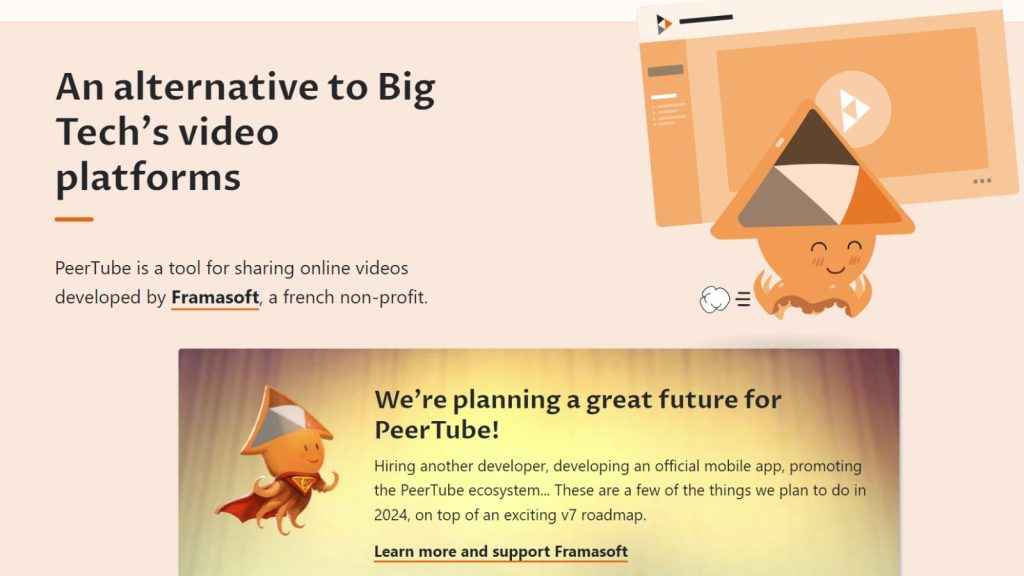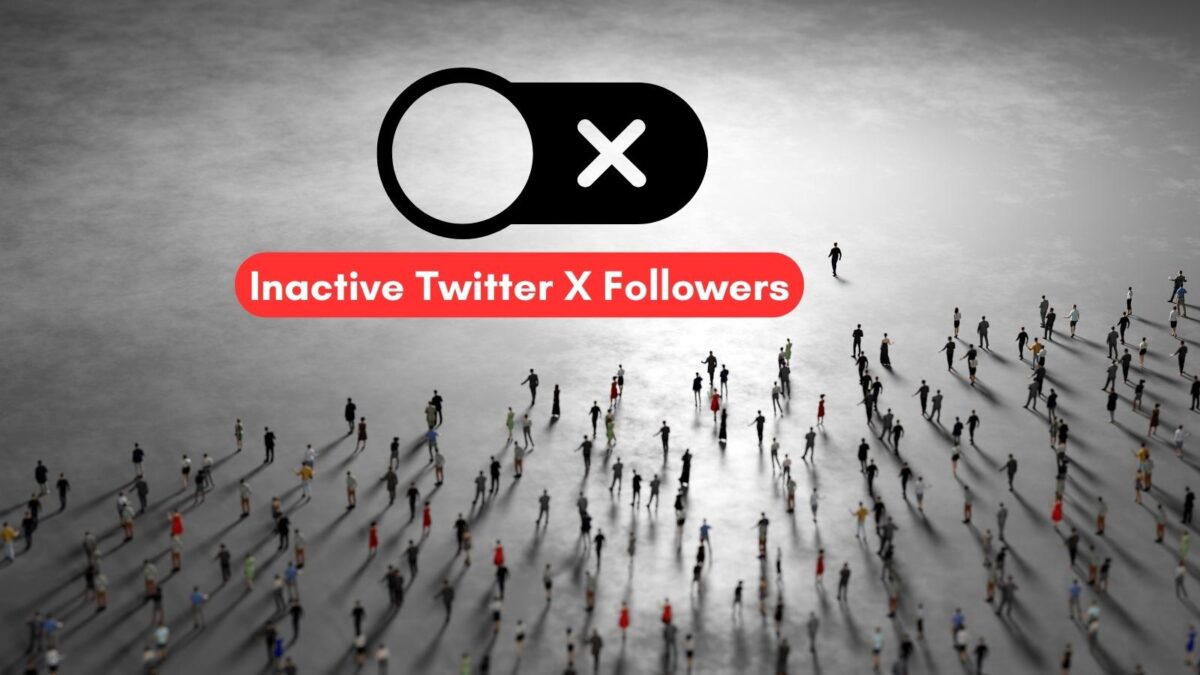There is no denying the dominance of YouTube in the world of video hosting and streaming. However, as content creators and consumers seek YouTube alternatives, an array of video hosting platforms have emerged to cater to this growing need.
Mixing up the platforms used for sharing video content not only provides you with more exposure but also ensures that your content remains accessible in case of unforeseen issues with a particular platform. This was particular true in 2020 where censorship really went array.
You may have read one of my latest posts about YouTube removing one of my videos. It was also given a strike on the channel. Of course, they will not explain why they took down the video.
From Vimeo to Dailymotion, and the up-and-coming platforms like Rumble and BitChute, the options for video content are expanding.
As the demand for various video platforms increases with the rise of AI, understanding the benefits of broadening your platforms becomes crucial for you.
YouTube is now exploring AI overviews on YouTube – will that affect your videos reach? Read more on that here on Inspire To Thrive.
Table of Contents
The Need To Explore Video Alternatives
The need to explore YouTube alternatives is not merely about expanding reach, but it also addresses concerns related to content censorship, data privacy, and audience engagement. Additionally, by utilizing various platforms, you can tap into different audience demographics and preferences, hence broadening their influence and impact.
In this blog post, I look at the growing necessity for YouTube alternatives. As well as the advantages of embracing different video platforms. and strategies for effectively utilizing these alternatives..
Whether you are a content creator, marketer, or simply a video enthusiast, understanding the landscape of video alternatives is becoming increasingly essential in today’s digital age.
Why Diversify Video Hosting Platforms
In the ever-evolving digital landscape, diversifying video hosting platforms is crucial for several compelling reasons.
Let’s explore the potential risks and how to mitigate them. Not only that but as the significant benefit of reaching fragmented audiences through multiple video hosting platforms.

Risk Mitigation
Relying solely on YouTube for video hosting exposes content creators to various risks. Algorithm changes, community guideline violations, or account terminations can lead to the sudden disappearance of content and a substantial loss of audience reach as I experienced first hand.
By mixing up your hosting platforms, you can elevant these risks, ensuring the longevity and accessibility of their video content.
Audience Reach
Utilizing multiple video hosting platforms presents an opportunity to reach different audiences across a variety online spaces. Every platform has its unique user base and demographics, allowing content creators to connect with a broader range of viewers.
By broadening the reach, creators can maximize their impact and engagement, catering to the preferences of various audience segments.
By recognizing the necessity of alternative video platforms, you can ensure the resilience and expansiveness of your online presence. Therefore, safeguarding against unexpected disruptions and enhancing audience connectivity.
Top Alternatives To YouTube
In a world dominated by YouTube, several platforms offer unique features that make them worthwhile alternatives.
Vimeo – Popular YouTube Alternative
Vimeo has gained popularity for its artistic and high-quality content, appealing to a more niche and artistic audience. Known for its ad-free experience and high-definition video hosting, Vimeo serves as a go-to platform for filmmakers. As well as artists, and creative professionals seeking a more polished and professional environment for their content.
Its audience skews towards individuals looking for a more curated and aesthetically pleasing video-watching experience.
Dailymotion – Video Alternative
Dailymotion provides an engaging platform that encourages user-generated content and offers a blend of professional and amateur videos. It positions itself as an alternative for creators looking to reach a global audience.
With features like trending content, personalized recommendations, and a diverse range of topics, Dailymotion attracts viewers seeking variety and discovery.
Veoh – User Friendly Alternative
Veoh boasts a user-friendly interface, making it an appealing choice for content creators looking for an intuitive platform. It offers diverse monetization options and tools for creators to grow their audience and earn revenue.
Veoh’s audience encompasses a broad spectrum of viewers looking for a seamless video-watching experience, It also explores a mix of user-generated and professional content.
Metacafe – Another YouTube Alternative
Metacafe caters to a diverse audience with its short-form videos, catering to those looking for quick entertainment and informative content.
It positions itself as a platform for viral videos, gaming content, and short clips. Therefore, making it an attractive alternative for viewers seeking concise and engaging video content within specific niches.
These YouTube alternatives offer unique features and cater to specific audiences, providing creators and viewers with more options beyond the traditional YouTube experience.
Emerging Platforms and Niche YouTube Alternatives
In the digitally diverse world of video content, traditional platforms like YouTube are no longer the only go-to for creators and viewers. Emerging platforms and niche alternatives have been gaining traction, offering unique features and catering to specific audiences.
Let’s explore some of these lesser-known video hosting platforms and their distinctive offerings in these YouTube Alternatives.
PeerTube – Alternative to YouTube
PeerTube stands out for its decentralized and open-source nature, making it a compelling choice for privacy-conscious users and communities. Unlike centralized platforms, PeerTube operates through a network of interconnected servers, allowing individual users to host their own instances.
This decentralized model not only empowers content creators but also fosters a sense of autonomy and data privacy. That resonates with those wary of centralized control and data exploitation.

BitChute – Another YouTube Alternative
BitChute has carved its niche by emphasizing decentralization and censorship resistance. This platform appeals to users seeking alternative content hosting, especially those who have encountered content moderation challenges on mainstream platforms.
By leveraging peer-to-peer technology, BitChute offers creators the freedom to share content without the fear of arbitrary takedowns or restrictions It fosters an environment conducive to diverse and sometimes unconventional viewpoints.
Rumble – The YouTube Alternative
Rumble has garnered attention for its growing popularity as a video platform for independent creators. One key aspect contributing to its appeal is the platform’s unique monetization model.
It offers offers you the opportunity to earn revenue through various means, including video licensing and ad revenue sharing.
This has positioned Rumble as an attractive alternative for creators seeking to diversify their income streams. Not only that gain greater control over their content distribution.
Lbry – Video Option
Lbry distinguishes itself through its decentralized and blockchain-based infrastructure, offering creators and viewers a novel approach to video hosting and sharing.
By leveraging blockchain technology, Lbry aims to redefine the dynamics of content ownership and distribution, providing a platform where creators have increased autonomy and viewers engage with content in a more direct and transparent manner. This innovative model has resonated with those seeking an alternative for content discovery and consumption.
Whether driven by privacy concerns, content freedom, or new monetization opportunities, these platforms represent a dynamic shift in the way video content is created, shared, and experienced.
Factors to Consider When Choosing A YouTube Alternative
When evaluating alternative video hosting platforms to YouTube, it’s important to consider various factors that can impact your content, audience, and revenue opportunities.
From monetization options to content policies and audience engagement features, understanding these factors will help you make an informed decision.
Monetization Options
Different video hosting platforms offer various monetization models, including ad revenue sharing, subscriptions, merchandise shelf, and direct fan support.
By exploring these options, you can determine which platform aligns best with your revenue goals and audience demographics. Assessing the revenue-sharing opportunities and payout thresholds is crucial when selecting an alternative to YouTube.
Content Policies and Restrictions
Understanding the content policies and restrictions of alternative video hosting platforms is vital to ensure that your content complies with their guidelines. Many platforms today require you mark AI created videos as such. It’s not that they don’t allow them but they want others to know the video was created by AI.
Factors such as copyright policies, community standards, and prohibited content categories should be carefully reviewed to avoid any violations that could lead to demonetization or account suspension.
By aligning with a platform’s content policies, you can build a sustainable video presence.
Audience Engagement Features
Audience engagement is essential for creators to build a loyal fan base and grow their channels. When evaluating alternatives to YouTube, consider the audience engagement tools, analytics, and community features offered by each platform.
Features such as live streaming capabilities, comment moderation, and personalized recommendations can significantly impact the creator-viewer interaction and content discoverability. Analyzing these engagement tools helps you select a platform that encourages growth and visibility for your videos.
By thoroughly assessing the monetization options, content policies, and audience engagement features of alternative video hosting platforms, you can make informed decisions that support your creative videos and business objectives.
Key Benefits of Diversifying Video Hosting Platforms
- Maximizing Reach: Venturing onto different video hosting platforms allows you to tap into diverse audiences, expanding your reach beyond the confines of a single platform.
- Risk Mitigation: Diversification assists in mitigating the impact of algorithm changes, account suspension, or other unforeseen events, ensuring continued visibility and revenue potential.
- New Monetization Avenues: Exploring alternative platforms opens doors to new monetization avenues, including ad revenue, sponsorships, partnerships, and direct fan support.
Conclusion
In a video world dominated by YouTube, it’s crucial for you as well as content creators and businesses to explore alternative video hosting platforms to maximize their reach and potential revenue streams.
Using several platforms not only broadens your audience reach but also acts as an insurance policy, safeguarding your videos against the potential impact of algorithm changes or account suspension.
By embracing alternative video hosting platforms, creators and businesses can tap into new monetization opportunities, build a new following, and maintain control over their content distribution.
So, consider venturing beyond YouTube to harness the full potential of your video content. What alternative YouTube video platform have you used? You can follow my Rumble channel here.
Popular choices include Vimeo, Dailymotion, Rumble, PeerTube, BitChute, Wistia, Brightcove, and Vidyard. Each has different features and pricing.
YouTube has strict content and monetization rules. Creators often want more control, fewer ads, better privacy, or different audiences.
Wistia and Vidyard are top picks for businesses. They offer analytics, branding options, and strong privacy controls.
Yes. Dailymotion, Rumble, PeerTube, and BitChute let you upload videos for free. Some have limits on storage or features.
Rumble and BitChute allow monetization. Vimeo and Wistia focus more on business use, not ad revenue.
Most YouTube alternatives support HD uploads. Vimeo is known for great video quality and minimal compression.
YouTube has a huge audience and advanced search. Other platforms have smaller reach, so you may need to share your videos more actively to grow your audience.
- 10 B2B Marketing Strategies To Grow Your Business Faster - July 14, 2025
- How To Change Page Name On Facebook For Your Business - July 13, 2025
- Trial Reels: How They Can Boost Your Reach On Instagram - July 12, 2025




These are all good options Lisa. I spent a decent chunk of time on Rumble a while back and made some progress but stepped back to focus on my blog. I did notice that a fair number of my videos received a steady number of thumbs down which seemed odd because most generate ample Likes on YouTube, Facebook and LinkedIn, as well as on Twitter. Either way, I need to hop over there and publish some fresh content again. Thanks for the reminder.
Ryan
Hi Ryan, I have to add a few as well. It’s easy to use and you can make a few bucks along the way too. Thanks for your input Ryan.